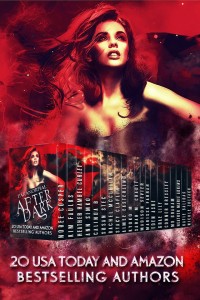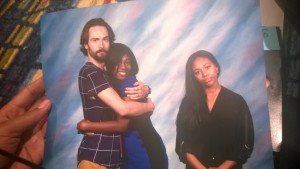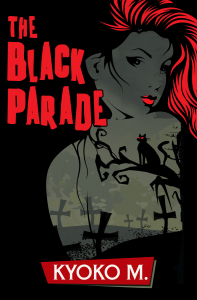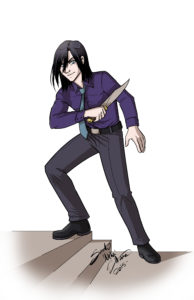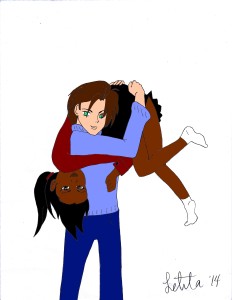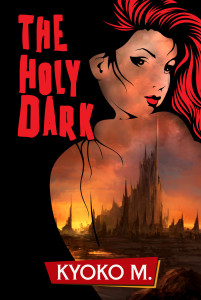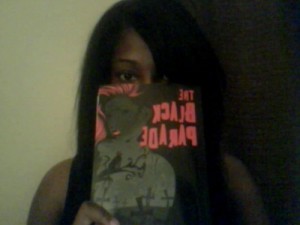
“What’s it like to be a self-published author?”

A little dramatic, but hey, it’s accurate. This is my second year as a self-published author, and as insane as it sounds, I’ve actually put in twice the work than I did my first year.
To keep with tradition, here’s a rough estimation of my stats from BookTrackr.com:
Copies Sold: 2232
Free Copies Sold: 13994
Reviews: 125
Money Earned Since 1st Publication Date: 2727.53
A marketed improvement from last year, no doubt. However, the same thing can be repeated as my first retrospective blog post from last year. Being a self-published author is a slog. It’s a long, arduous journey of walking across a burning desert dragging our books along behind you like Will Smith in Independence Day. And yes, you will occasionally yell at them, stop, and kick them a few times while insisting you could have been at a barbeque.
Very few authors have it made, and the ones who do will still tell you that this is an extremely difficult career path to navigate. However, having tried and failed at several thousand things, I can happily provide a few lessons that I’ve learned over the past year.
-No matter what happens, some authors will always insist that you have to “choose a side” between self-publishing and traditional publishing. You can’t escape it. People seem happiest when they can label something and identify an enemy, and so the best thing to do is straddle the fence. Neither side is “right” or “wrong.” They’re simply different entities. Your life will be infinitely easier if you don’t draw a line in the sand. If you feel strongly enough to do so, sure, go ahead, but don’t be a bully and don’t be unprofessional about it. You can burn bridges you didn’t even know were there if you do.
-Amazon is always going to do whatever it wants to do. We as authors don’t have control over it because we don’t own it, and we certainly shouldn’t feel entitled to certain kinds of treatment or making calls that aren’t ours to make. There are other platforms from which to sell books, and if Amazon makes you unhappy, pursue them, or switch to traditional publishing. You can waste a lifetime complaining on forums about how you dislike their policies and it will change nothing.
-If your work permits it, joining other authors in a boxed set can help get you into the hands of readers that you might not have had access to otherwise. As long as you are treated professionally and aren’t operating at a loss, give it a shot. I’ve been in two of them so far, and it’s done wonders for my discoverability. There is no perfect boxed set, though, and sometimes they promise you goals that are unrealistic or unattainable, but it’s still a rewarding experience and fantastic exposure. Plus, meeting other authors and collaborating with them is almost always a great idea.
-If you’re into fandom-related activities like comic/anime cons, try reaching out to the organizers. All they can do is say no, and that’s the worst case scenario. You might be able to stumble across an opportunity to promote your work and discover a new audience as well as meeting like-minded people for a few days of fun.
-The permafree model is still a good way to go if you are 100% new at publishing and have no following. It opens up doors and gets you the most basic level of readers, the freebie seekers. However, the next step that you’re looking for is people who are mildly interested in your work. This tier is very desirable because unlike the freebie seekers, they will shell out cash for your work, but you have to be very patient as some of them can lash out if they dislike your book and it can take a long time for you to gather reviews. If you reach this tier within your second year of publication, make sure that your work is as high quality as you can make it and make sure that you have multiple works. The permafree model really only works if you have a series, not a standalone or two-book series.
-If you find yourself starting to consistently spend money on editing, marketing, promotions, and other expenses, keep track of them for the sake of your taxes. Unfortunately, royalties are not taxed in the US with Amazon, so when Tax Day comes, you owe the government a fat check and if you’re a low income earner like me, it evaporates your refund. Seriously. I got $77 back from the IRS this April. It’s that awful.
-If you’re writing a series, particularly in science fiction or fantasy, write yourself little notes of characters, plot threads, or premises that could be good spin offs in the future. I wrote a four book series because I feel that this is the length of Jordan’s journey as a character, but the supporting cast does have the potential to be explored as well. Don’t get too focused on just one thing. Most successful authors have a couple of novellas, short stories or short story collections, or anthologies that help line their pockets after they’ve created their own fanbase. Always keep a backlog of ideas for future works in case you conclude one series. Keeping momentum is extremely important.
-The key to staying afloat is consistency. One book a year is the standard, and that’s for traditional publishing. For self-published authors, especially debut authors, it’s actually 1-3 books a year for maximum saturation and exposure. A lot of people hate the long waits between books (seriously, I am so impatient for the release of Peace Talks that I cannot stop writing Dresden Files fanfics) and if you have multiple works drop per year, you can accumulate more readers in a fraction of the time.
-Stay connected to your fans however you can. Social media is taxing, but I’ve had a lot of new readers reach out through Twitter and Facebook to say they enjoyed my work. Say thank you every single time. Doesn’t matter if it’s just a short little post. Do it. Thank every last reader you get and make sure you leave a good impression with them, because while social media marketing and online promotion are powerful, Word of Mouth is still the best way to get readers. It’s the hardest to accomplish, but by far the most successful way to increase your readers. Be gracious and accept fair criticism when it’s given.
-If you have the budget, try creative outlets like having commissions done of your characters or alternative book covers. Fans respond to pictures way faster than text posts, in my experience, and new images from the series are far more likely to get shared than anything else.
-If you start getting negative reviews, only skim them for relevant issues. If it’s just a rant about how much you suck, don’t even read it. Keep on scrolling and don’t get angry. We’ve had too many authors get in needless dust ups with reviewers this year. Don’t respond. Ever. Unless you’re Brock Baker, you are not allowed to mock your critics. You’re an author. Write well and write often and that’s all you can do, no matter how much it bothers you to get nasty reviews. (And yes, one and two star reviews are ALWAYS going to bother you, bestselling author or not.)
-If possible, submit guest blogs/articles to writing sites and other subjects you’re interested in. This year, I had a big success with my article about Natasha Romanoff and feminism on Black Girl Nerds, and while it didn’t immediately reflect in sales, it got me a lot of buzz and some new followers on Twitter from my key demographic of readers. Social media is NOT about selling books; it’s about connecting with other people. Eventually, some of them might give your work a try, and that’s the important thing. Be genuinely interested in something and be entertaining and intelligent, and often, they’ll come to you.
If anything, my second year in self-publishing has taught me that the best thing you can do is expand your mind and understand that there isn’t one path to growing your readership. There are hundreds, and while you may not instantly rocket to success on your first or second try, you can slowly start to push that boulder closer to the top of the hill. And, if you’re lucky, you have a couple good people helping you push, or you can give advice to the people on the hill next to you doing the same thing.
Here’s to another year and another climb up that hill. Thanks to everyone who has stuck by me and enjoyed my work. I look forward to bringing you more of it soon.
Kyoko
